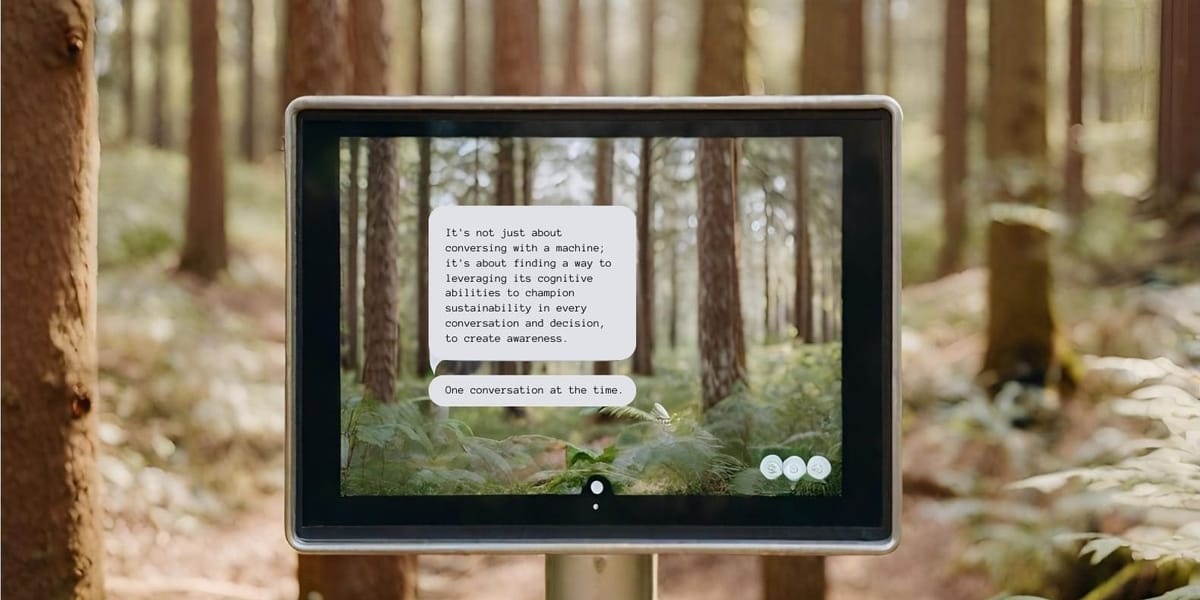ChatGPT's Potential for Sustainable Impact: One Conversation at the Time

Last week, ChatGPT marked its first year in the public domain, marking 2023 a year with significant progress in natural language understanding and major spotlights on publicly accessible applications using the underlying natural language processing (NLP) algorithms developed by OpenAI.
Customer support chatbots and language translation services are part of the most common user-facing applications built using the ChatGPT algorithm. This is due to the models' ability to mimic human-like language patterns and generate contextually appropriate responses: it feels similar to consulting an expert advisor. However, ChatGPT operates solely based on the input it receives. Its responses are generated using the information it has been trained on and the prompts or queries given to it.
Emphasising Sustainable Responses
The potential of ChatGPT transcends mere conversational abilities: it opens the door to a future where such advanced language models play a central role not just in answering queries, but also in emphasising the necessity and providing the most sustainable solutions to the problems users want more information about. It could be not just about conversing with a machine; it's about leveraging advanced cognitive abilities to champion sustainability in every conversation and decision to create a better world—one conversation at a time.
The true power of sustainably intelligent NLP algorithms lies not just in the capacity to generate text, but in its potential to guide users towards sustainable choices. For example, imagine engaging ChatGPT to help you explore ways to optimize energy consumption in your home or business:
What is the best way to reduce my energy bill?Lowering your energy bill can be done by cutting back on appliance usage and using them only when necessary. You could also consider using cheaper, older models of appliances, as they tend to consume less electricity.Lowering you energy bill can be done by optimizing energy consumption in your home due to investing in energy-efficient appliances. Switching to LED light bulbs, installing smart thermostats to regulate heating and cooling, and using solar panels for renewable energy are sustainable choices.Leveraging for a Better Future
With every query, ChatGPT could have the opportunity to nudge towards more environmentally conscious decisions. By providing tailored advice, resources, and information, it becomes a catalyst for change, fostering a mindset prioritising sustainability for future generations.
It's essential to remember that in the example of ChatGPT, relying solely on algorithms for providing sustainable solutions poses limitations due to its reliance on static data, potential lack of contextual understanding, and absence of ethical reasoning. However, with this potential approach of utilising algorithms to champion sustainable practices and create a better world, each interaction becomes an opportunity to push the boundaries of sustainability, paving the way for a future where AI isn't just intelligent—it's sustainably intelligent.